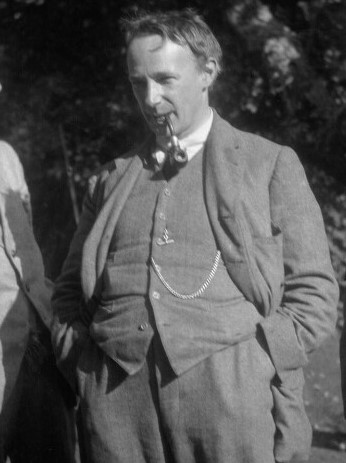

The tremendous influence of Moore and his book on us came from the fact that they suddenly removed from our eyes an obscuring accumulation of cobwebs, and curtains, revealing for the first time to us, so it seemed, the nature of truth and reality, of good and evil and character and conduct, substituting for the religious and philosophical nightmares, delusions, hallucinations, in which Jehovah, Christ, and St. Paul, Plato, Kant, and Hegel had entangled us, the fresh air and pure light of plain common sense.
Leonard Woolf, Sowing: an autobiography of the years 1880-1904
George Edward Moore was a philosopher, humanist, and significant influence on key members of the Bloomsbury Group. He was President of the Ethical Union (now Humanists UK) 1935-6, and of the Aristotelian Society 1918-19, of which many other notable humanists were a part. Moore was influential as a philosopher, admired as a gifted teacher, and loved as a remarkable human being. In his devotion to enquiry, to seeking the truth of things through clear-thinking and common sense, and to other human beings, Moore was a consummate humanist.
George Edward Moore was born in London, educated first at home, then at Dulwich College, and finally at Trinity College, Cambridge. It was in Cambridge that he would spend much of his academic and professional life, exerting significant influence, not least on the members of the ‘Apostles’ who would go on to form the heart of the Bloomsbury Group. Leonard Woolf expressed this influence in terms of Moore’s devotion to clarity and possibility: answering the central questions of those who looked to him not with religious responses but with the ‘more divine voice of plain common sense’.
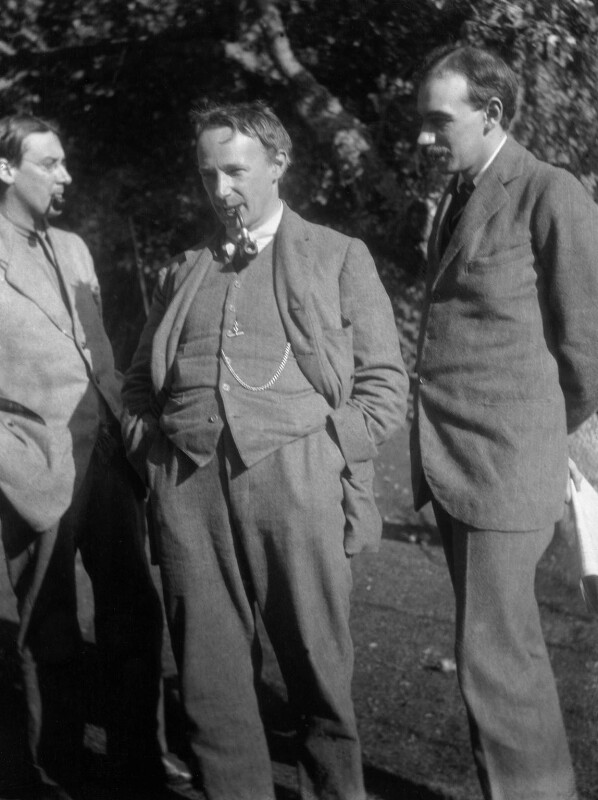
Moore went up to Cambridge at 18, and graduated with first class honours in Classics and Moral Sciences in 1896. Like Leonard Woolf, Bertrand Russell, E.M. Forster, and John Maynard Keynes, Moore was a member of the Cambridge Apostles (or Cambridge Conversazione Society), an elite and secretive society founded in 1820 for the discussion of ideas. He was appointed a Fellow of Trinity College in 1898, where he remained until 1904. Within this time, Moore published his influential Principia Ethica (1903). Following seven years of independent philosophical work, he returned to Cambridge in 1911 as a lecturer. In 1925 he became Professor of Mental Philosophy and Logic, in which role he remained until his retirement in 1939.
In a letter written in 1894, Bertrand Russell wrote of Moore (18 months his junior):
I almost worship him as if he were a god. I have never felt such an extravagant admiration for anybody.
Russell was always clear on the extent to which he was influenced by Moore as a young man. He later wrote that ‘for some years he fulfilled my ideal of genius’ and, like Woolf, credited Moore with liberating his thought.
Moore had been drawn to philosophy because of a fascination with how philosophers asked the questions they did; with what those questions really meant. In his brief autobiography, he wrote:
I do not think the world or the sciences would ever have suggested to me any philosophical problems. What has suggested philosophical problems to me are things which other philosophers have said about the world or the sciences.
Moore was especially interested in the indefinability of ‘the good’, which he felt could not be uncovered through argument or reasoning but was intuited, or felt. He had no time for anything he considered unclear or needlessly perverse. ‘Moore could never tolerate anything but truth, common sense, and reality’, said Leonard Woolf. He ‘pursued truth with the tenacity of a bulldog and the integrity of a saint’.
Moore married Dorothy Ely in 1916 and had two sons. For over two decades (1921-1947) he was editor of the journal Mind. He was a talented piano player and singer, much admired by his friends and colleagues, who remembered not only his sharp mind, but also his unfailing kindness and courtesy. In the final chapter of Principia Ethica, which inspired such devotion among members of the Bloomsbury Group, Moore had argued that:
By far the most valuable things, which we can know or imagine, are certain states of consciousness. Which may be roughly described as the pleasures of human intercourse and the enjoyment of beautiful objects… it is only for the sake of these things—in order that as much of them as possible may at some time exist—that anyone can be justified in performing any public or private duty.
After some years in the United States, Moore spent the last years of his life in Cambridge. He was appointed to the Order of Merit in 1951, and died in 1958 at the age of 84.
George Moore was a great man, the only great man whom I have ever met or known in the world of ordinary, real life. There was in him an element which can, I think, be accurately called greatness, a combination of mind and character and behaviour, of thought and feeling which made him qualitatively different from anyone else I have ever known.
Leonard Woolf
In recollections of Moore by friends and colleagues, the words ‘simplicity’, ‘integrity’, ‘admiration’, and ‘affection’ commonly occur. His significant influence on his contemporaries and friends was due not only to his ‘completely unfettered pursuit of truth’ (in the words of Bertrand Russell), but to the contagious passion with which he expressed it. Russell also noted Moore’s ‘extraordinarily lovable smile’, which Woolf too recalled:
Moore laughed, when he did laugh, with the same passion with which he pursued truth or played a Beethoven sonata.
Ernest Nagel, philosopher and colleague at Columbia University in the 1940s, summed up Moore’s lessons for the philosophers who came after him, and for humanists today, when he wrote:
We can all be his disciples in trying to get really clear as to what on earth we mean by our assertions, and in attempting to find really satisfactory reasons for the views we profess.
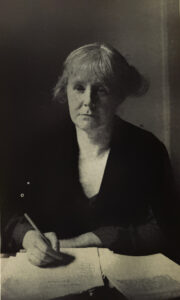
What is this ban on abortion? It is a sexual taboo, it is the terror that women should experiment and […]
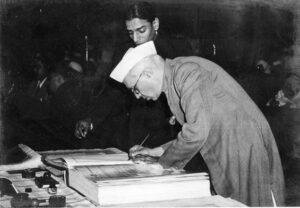
Essentially, I am interested in this world, in this life, not in some other world or a future life. Whether […]
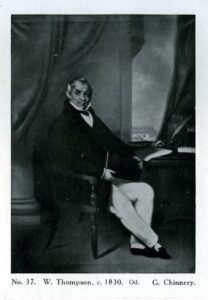
All moral and political wisdom should tend mainly to this, the just distribution of the physical means of happiness. William […]
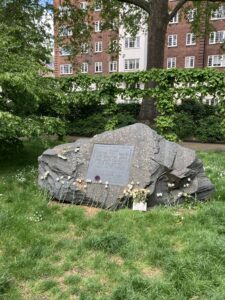
To all those who have established and who are maintaining the right to refuse to kill. Their foresight and courage […]